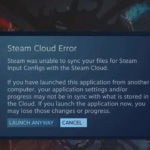In recent years, poker has experienced a remarkable shift as more and more fans and entrepreneurs strive to migrate their poker games into the online sphere. Constructing a poker website demands meticulous planning, technical know-how, and an intimate comprehension of the poker industry. Within this article, we will provide you with guidance on the crucial stages necessary to establish your very own poker website, effectively transforming your love for the game into a flourishing online endeavor.
Define Your Vision and Goals
To ensure a solid foundation for your poker website, start by clearly defining your vision and goals. Consider the kind of poker website you desire to create. Will it focus on cash games, tournaments, or both? Are you leaning towards a free-play platform or a real-money involvement? It is crucial to comprehend your target audience and highlight the distinctive features your website will offer. This level of understanding will guide your strategy and enable you to make informed choices during the development journey.
Choose the Right Software Solution
When it comes to building a poker website, choosing the right software solution plays a pivotal role. You can build a custom platform from scratch or buy poker software from reliable providers like RunYourOwnPokerSite.com. Custom platforms provide you with full control and customization options, but they also demand substantial time, resources, and technical know-how. In contrast, white label solutions offer pre-built software that can be swiftly implemented, saving you development time and effort. Before making your decision, assess your specific requirements, budget constraints, and future scalability needs to determine the most suitable software solution for your poker website.
Design and User Experience
To captivate and maintain players on your poker website, prioritize an aesthetically pleasing and user-friendly design. Seek out the expertise of a professional web designer or explore templates designed specifically for poker websites. Guarantee a seamless experience by ensuring the design is intuitive and responsive on different devices, while also optimizing loading speed. Furthermore, emphasize a pleasurable user journey through convenient navigation, an intuitive lobby, and clear instructions for playing poker games.
Security and Payment Integration
In the online poker industry, nothing matters more than security. To safeguard user data, transactions, and prevent cheating, it is imperative to establish strong security measures. Essential components include SSL encryption, ensuring secure user authentication, and conducting regular security audits. Another crucial aspect is to integrate with trustworthy payment gateways, offering multiple payment options for players while ensuring secure deposits and withdrawals.
Game Variety and Features
The key to attracting and keeping players on your poker website lies in offering a wide array of games and features. Think beyond the typical Texas Hold’em and Omaha, and include lesser-known poker variants to appeal to a broader audience. Additionally, consider incorporating diverse game formats like tournaments, sit-and-go games, and cash games with varying stakes to accommodate players with different skill levels and preferences. To enhance the interactive experience and create a sense of community, include exciting social features such as chat options, customizable player avatars, and leaderboards.
Compliance with Laws
To run a poker website successfully and lawfully, it’s imperative to comply with the legal and regulatory demands of your target market. Make sure you understand the gambling laws and regulations of your jurisdiction and acquire the required licenses and permits. Seek assistance from legal professionals who specialize in online gambling regulations to guarantee that your website meets all legal obligations and safeguards players’ interests.
Marketing and Promotion
The success of your poker website heavily relies on effective marketing and promotion to attract players and foster a bustling poker community. To achieve this, make use of diverse marketing channels like social media, SEO, content marketing, and affiliate partnerships. Through these avenues, create awareness and channel traffic to your website. Additionally, implement retention strategies such as loyalty programs, bonuses, and regular promotions to ensure player engagement and encourage repeat visits.








